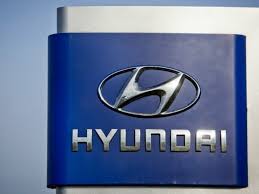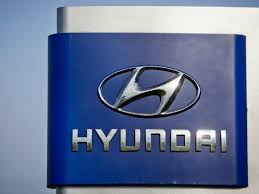
Up until now the global shortage of chips in the auto industry has not been able to hit South Korea’s Hyundai Motor in any significant manner as it has remained more or less resilient to the crisis. But the company will be facing the challenge to curb production because of the shortage from April.
Output of their less popular models have already been cut while weekend work for employees at some production lines has been also been reduced by Hyundai and its affiliate Kia, which together rank as the fifth largest carmaker of the world, according to reports quoting sources with knowledge of the matter.
The group sells over 500,000 vehicles a month.
The severe nature of the global shortage in the semiconductors that are used in everything – from power-steering to anti-lock brakes in vehicles, is underscored by this latest development. Global auto makers including Volkswagen, General Motors and Honda have been forced to curb production because of the shortage in chip supply because of disruption to supply chains and a sudden surge in demand of the chips for electronic devices. It is expected that the shortage will not ease until the second half of the year.
“Their inventory levels are already tight . . . The problem will start disrupting their production from April,” said a report quoting a person with direct knowledge of Hyundai’s situation.
So farm, Hyundai has been able to shield itself from the chip shortage because it had stockpiled chips last year.
After experiencing issues with importing of car parts from China in early 2020 as well as because of the trade tensions with Japan a year earlier, the South Korean auto group has diversified its supply chain and has started to hold on to more inventory. Even though the pandemic had hit the sales of the company and forced shut down its factories last year, Hyundai had not cancelled any orders for chips.
“They have fared better as they built up a lot of inventories last year but things will be more difficult from next month,” said Lee Hang-koo, an adviser at Korea Automotive Technology Institute, a research firm.
Earlier this month, production for the Sonata sedan was stopped for five days by Hyundai at a South Korean factory while weekend shifts were also suspended at the production lines for less popular models of Kia. The company was attempting to save the chips it has in its inventory for its best-selling models, said a report quoting a union official of the company.
The company had taken these steps anticipating weak demand for some of its vehicles, Hyundai said, and added that the chip shortage will not have any immediate effect on the overall production of the company. “The company is closely monitoring the situation to take prompt and necessary measures to optimise production in line with supply conditions,” Hyundai said.
NXP, Infineon and Renesas Electronics are among the more than ten suppliers of chips to Hyundai. A recent fire at the factory of Renesas, one of the largest makers of the world for the automotive industry, was likely to affect Hyundai, analysts expect. That could add on to the already existing troubles due to chip shortage – which was triggered by a sudden and massive surge in demand for electronic devices during coronavirus lockdowns as well as because of the spell of very cold weather in Texas, United States, which upended the supply chain.
“Their inventories are running out fast and will start disrupting production of midsized sedans first from next month while production of core models will likely be affected later,” said Kim Jin-woo, an analyst at Korea Investment & Securities.
(Source:www.ft.com)
Output of their less popular models have already been cut while weekend work for employees at some production lines has been also been reduced by Hyundai and its affiliate Kia, which together rank as the fifth largest carmaker of the world, according to reports quoting sources with knowledge of the matter.
The group sells over 500,000 vehicles a month.
The severe nature of the global shortage in the semiconductors that are used in everything – from power-steering to anti-lock brakes in vehicles, is underscored by this latest development. Global auto makers including Volkswagen, General Motors and Honda have been forced to curb production because of the shortage in chip supply because of disruption to supply chains and a sudden surge in demand of the chips for electronic devices. It is expected that the shortage will not ease until the second half of the year.
“Their inventory levels are already tight . . . The problem will start disrupting their production from April,” said a report quoting a person with direct knowledge of Hyundai’s situation.
So farm, Hyundai has been able to shield itself from the chip shortage because it had stockpiled chips last year.
After experiencing issues with importing of car parts from China in early 2020 as well as because of the trade tensions with Japan a year earlier, the South Korean auto group has diversified its supply chain and has started to hold on to more inventory. Even though the pandemic had hit the sales of the company and forced shut down its factories last year, Hyundai had not cancelled any orders for chips.
“They have fared better as they built up a lot of inventories last year but things will be more difficult from next month,” said Lee Hang-koo, an adviser at Korea Automotive Technology Institute, a research firm.
Earlier this month, production for the Sonata sedan was stopped for five days by Hyundai at a South Korean factory while weekend shifts were also suspended at the production lines for less popular models of Kia. The company was attempting to save the chips it has in its inventory for its best-selling models, said a report quoting a union official of the company.
The company had taken these steps anticipating weak demand for some of its vehicles, Hyundai said, and added that the chip shortage will not have any immediate effect on the overall production of the company. “The company is closely monitoring the situation to take prompt and necessary measures to optimise production in line with supply conditions,” Hyundai said.
NXP, Infineon and Renesas Electronics are among the more than ten suppliers of chips to Hyundai. A recent fire at the factory of Renesas, one of the largest makers of the world for the automotive industry, was likely to affect Hyundai, analysts expect. That could add on to the already existing troubles due to chip shortage – which was triggered by a sudden and massive surge in demand for electronic devices during coronavirus lockdowns as well as because of the spell of very cold weather in Texas, United States, which upended the supply chain.
“Their inventories are running out fast and will start disrupting production of midsized sedans first from next month while production of core models will likely be affected later,” said Kim Jin-woo, an analyst at Korea Investment & Securities.
(Source:www.ft.com)





